ISCES 2023
3rd International Scientific Conference on Environmental Sustainability in Natural Resources Management
ABOUT ISCES
International Scientific Conference on Environmental Sustainability in Natural Resources Management (ISCES 2023) is being organized and will be held on October 20, 2023 in Batumi, Georgia.
ISCES 2023 is organized by Batumi Navigation Teaching University, University of Bari Aldo Moro, National University of Water and Environmental Engineering in partnership with the National Technical University of Ukraine «Igor Sikorsky Kyiv Polytechnic Institute”.
ISCES 2023 is a peer-reviewed international conference focusing on research advances and applications in Sustainability, Circular Management and Environmental Engineering.
Due to the global COVID-19 pandemic, the ISCES 2023 organizing committee decided to conduct the conference in the form of a HYBRID CONFERENCE on 20 October 2023 combining a live in person event with a virtual component.
The ISCES 2023 organizing committee will send an invitation with a link to the meeting and an agenda / program of conference.
The Proceedings of ISCES 2023 will be published by IOP Series: Earth and Environmental Science (Online ISSN: 1755-1315, Print ISSN: 1755-1307) and will be submitted to Scopus (Elsevier) for indexing.
Sustainable development can be defined as development that meets the needs of the present without compromising the ability of future generations to meet their own needs. Sustainability goals address the global challenges, including poverty, inequality, climate change, environmental degradation, peace, and justice.
For this reason the Sustainability and Circular Economy is a potential frame for Natural Resource Use leading to social cohesion, economic competitiveness and stability, use of resources and economic development, safeguarding biodiversity and the ecosystem.
Thematic Areas of the Conference are related to the implementation of the Sustainable Development Goal in context of Environmental Sustainability in Natural Resources Management.
ISCES 2023 focuses on the themes of Circular Economy and Environmental Sustainability and in this context, the aim of ISCES 2023 is to provide a platform for researchers, entrepreneurs, higher education teachers and authorities to present their research results and development activities in the following conference topics:
- Green, Digital and Resilient Economy
- Natural Resources Management
Environmental Sustainability and Engineering Management
The Conference language are English.
We invite you to participate in the conference and look forward to fruitful cooperation.
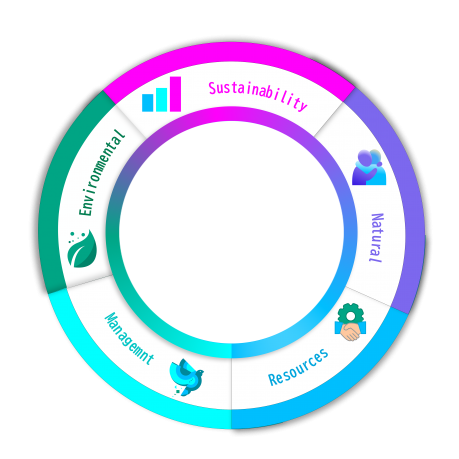
CALL FOR PAPER
The 3rd International Conference on Environmental Sustainability in Natural Resources Management (ISCES 2023) has issued the Final Call for Papers and has opened registration for the conference scheduled for September 15, 2023.
ISCES 2023 is a peer-reviewed international conference focusing on research advances and applications in Circular Economy and Natural Resources Management.
The ISCES 2021 and ISCES 2022 Proceedings of the International Conference on Environmental Sustainability in Natural Resources Management was published by IOP Publishing in Volume 915 (2021) and Volume 1126 (2023) of IOP Series: Earth and Environmental Science and indexed in Scopus.
Papers will be checked in a plagiarism tool and that any ethical misconduct will be considered very seriously.
Acceptable minimum of originality is 90%.
Thematic Areas of the Conference are related to the implementation of the Sustainable Development Goal in context of Sustainable, Circular Management and Environmental Engineering.
ISCES 2023 focuses on the themes of Circular Economy and Environmental Sustainability and in this context, the aim of ISCES 2023 is to provide a platform for researchers, entrepreneurs, higher education teachers and authorities to present their research results and development activities in the following conference topics:
1. Green, Digital and Resilient Economy
Green Business and Corporate Governance
Digital Sustainability and Net-Zero Economy
Circular Economy and Bioeconomy
2. Natural Resources Management
Natural Resource Development Potential
Social Responsibility Resources
Ecologically Safe Technological Processes
3. Environmental Sustainability and Engineering Management
Environmental Regulations and Legal Aspects of Sustainable Development
Environmentally Sustainable Infrastructure and Renewable Energy
Sustainable Water Use, Agriculture and Organic Farming
As part of the submission process, authors are required to check off their submission’s compliance with all the following items, and submissions may be returned to authors that do not adhere to these guidelines.
For the submission process see the details according to author guidelines and general publication terms, requirements for the article formatting and requirements for references.
All participants must register for the conference until October 15, 2023 by mail to scincecentre@gmail.com and fill out the Registration form.
PUBLICATION
Authors are invited to submit full (and original research) papers (10 pages) including surveys, tutorials, perspective/colloquia papers on conference topics, by filling out the Registration form.
All accepted papers from ISCES 2023 will be published by IOP Series: Earth and Environmental Science (Online ISSN: 1755-1315, Print ISSN: 1755-1307) and will be submitted to EI-Compendex, CPCI-S (ISTP), Scopus (Elsevier) for indexing.
Carefully read the “Licence Terms and Conditions” for publication in the IOP Conference Series: Earth and Environmental Science Please note that by submitting your paper for publication.
Paper Formatting
Accepted papers written in English will be published after conference. Therefore, for preparing your submission please STRICTLY FOLLOW the Editorial Guidelines. Authors should be submit online before September 15, 2023 :
- An paper in the format of Conference Proceedings (8-10 pages).
- Author guidelines for conference proceedings. After accepting the paper:
- Video presentation up to 10 minutes (the authors will be given instructions on how to prepare a video presentation).
- References should use the DOI is highly encouraged, as shown in the Style Points and can be easily found on Google Scholar and linked via Crossref. Please check all sources (Scopus, CrossRef) and ensure that data provided in the references are correct before submitting an paper.
- The number of references in the list of references should not be less than 10 (most sources from Scopus).
- The quality of the digital images should have an original high-resolution, at least 300 dpi for figures that will be printed, and at least 150 dpi for an online only publication.
Papers will be checked in a plagiarism tool and that any ethical misconduct will be considered very seriously. Paper will be peer reviewed after it has been checked for plagiarism using Unicheck software.
Authors are encouraged to refer to the Committee on Publishing Ethics (COPE) for all aspects of publication ethics (http://publicationethics.org) and to strictly conform to the ethical rules described on publishing policies ethics.
Papers which are prepared for publishing should be original research manuscripts, never published before and not under consideration for publication in any other conference proceeding (journal etc.).
All papers are supposed to present novel research results of international interest. Papers need to be related to the main topic of the conference and conference topic fields.
Articles are published in English only. The article should be written in a language understandable to a specialist in the relevant field. Compliance with English translation requirements is done by native speakers and professional translators.
All papers are reviewed by a native speaker. All papers are thoroughly checked for plagiarism. Acceptable minimum of originality is 90%. All papers should be not less than 8 pages (recommended 8-12 pages). At least one author of each article should attend to the conference. All references mentioned in the Reference List are cited in the text, and vice versa. References can only be linked via Crossref if they are correct and complete. The manuscript must be in DOC (or DOCX) file. The manuscript should follow the IMRAD format:
Introduction
State the objectives of the work and provide an adequate background, avoiding a detailed literature survey or a summary of the results.
Material and methods
Provide sufficient details to allow the work to be reproduced by an independent researcher. Methods that are already published should be summarized, and indicated by a reference. If quoting directly from a previously published method, use quotation marks and also cite the source. Any modifications to existing methods should also be described.
Theory/calculation
A Theory section should extend, not repeat, the background to the article already dealt with in the Introduction and lay the foundation for further work. In contrast, a Calculation section represents a practical development from a theoretical basis.
Results
Results should be clear and concise.
Discussion
This should explore the significance of the results of the work, not repeat them. A combined Results and Discussion section is often appropriate. Avoid extensive citations and discussion of published literature.
Conclusions
The main conclusions of the study may be presented in a short Conclusions section, which may stand alone or form a subsection of a Discussion or Results and Discussion section.
References to the sources used should be in the order of mentioning in the text in the format [1], [2-6], [3, 5, 7]. You should not give links to unpublished articles.
Essential requirements
Articles must not contain page numbers, headers or footers
This is extremely important. Page numbers, copyright details etc are added by IOP Publishing during the production and publication process. If you put page numbers on your paper we will have to contact you for a replacement PDF, which could delay publication of the entire proceedings.
Article margins must be adequate
We recommend a minimum 25mm all round. The Microsoft Word template automatically provide the correct margins so their use is highly recommended.
All articles must have an abstract
When readers are searching for information online, an abstract of an article is likely to be the first thing they see. Your abstract needs to be concise but convey as much information as possible about the content of your article. In addition, IOP Publishing will supply your abstract to many other database systems used by researchers to find papers; consequently, your article’s abstract will help bring your work to the attention of the scientific community.
All papers must have the e-mail address of one author we can contact
Essential guidelines
Please follow these essential guidelines when preparing your paper:
Templates
Authors must prepare their papers using our Microsoft Word template for submission:
IOP Proceedings Licence
For papers published in our gold open access proceedings titles IOP no longer requires authors to sign and submit copyright forms. Our other journals are unaffected by this change. Authors who wish to publish a paper in the following titles:
- IOP Conference Series: Materials Science and Engineering (MSE)
are asked to submit a paper only if all authors of the paper agree in full to the terms of the licence. All papers submitted to us for publication in the above titles will be published according to the following terms and conditions.
Licence terms and conditions
By submitting the paper to the conference organizer, you, as copyright owner and author/representative of all the authors, grant a worldwide perpetual royalty free exclusive licence to IOP Publishing Limited (IOP) to use the copyright in the paper for the full term of copyright in all ways otherwise restricted by copyright, including, but not limited to, the right to reproduce, distribute and communicate the article to the public under the terms of the Creative Commons Attribution (CC BY) licence (creativecommons.org/licenses/by/4.0 or any newer version of the licence) and to make any other use which IOP may choose world-wide, by all means, media and formats, whether known or unknown at the date of submission, to the conference organizer.
This licence does not transfer the copyright in the paper as submitted which therefore remains with the authors or their employer, as appropriate. Authors may not offer the paper to another publisher unless the article is withdrawn by the author(s) or rejected by IOP.
Once published, the paper may be reused in accordance with the terms of the applicable Creative Commons Attribution (CC BY) licence, including appropriate citation information (for electronic use best efforts must be made to include a link to the online abstract of the paper on IOPscience), a link to the Creative Commons Attribution (CC BY) licence, and indicating if any changes have been made to the original paper.
By granting this licence, the author warrants that the paper they are submitting is their original work, has not been published previously (other than in a research thesis or dissertation which fact has been notified to the conference organizer in writing), all named authors participated sufficiently in the conception and writing of the paper, have received a final version of the paper, agree to its submission and take responsibility for it, have read and understood IOP Publishing’s ethical policy (https://publishingsupport.iopscience.iop.org/ethical-policy-journals/) and agree that the submission complies with its terms, and the submission has been approved as necessary by the authorities at the establishment where the research was carried out.
By granting this licence, the author also warrants that they act on behalf of, and with the knowledge of, all authors of the paper, that the paper does not infringe any third party rights, it contains nothing libellous, all factual statements are, to the best of the authors’ knowledge and belief, true or based on valid research conducted according to accepted norms and our ethical policy (https://publishingsupport.iopscience.iop.org/ethical-policyjournals/), and all required permissions have been obtained.
KEYNOTE SPEAKERS
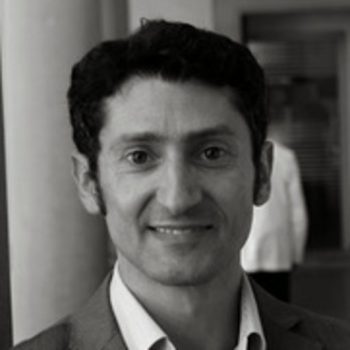
Prof.Dr. Alessandro Rubino
University of Bari Aldo Moro, Italy
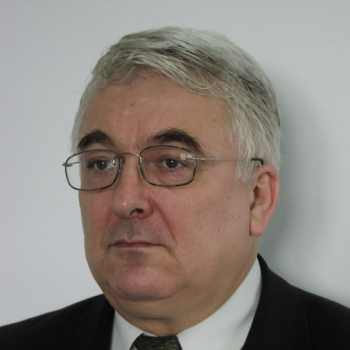
Prof. Dr. Waldemar Wójcik
Lublin University of Technology, Poland
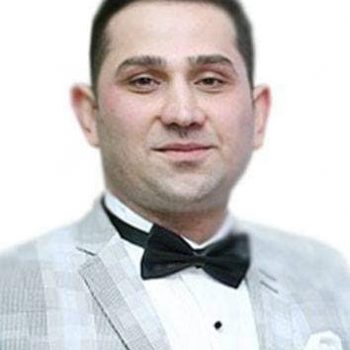
Dr. Zurab Mushkudiani
Batumi Navigation Teaching University, Georgia
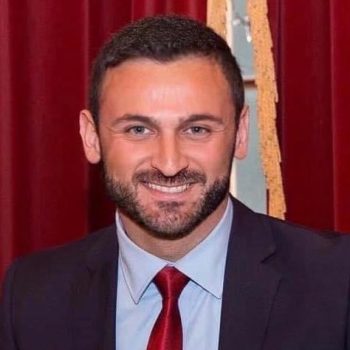
Dr. Giga Abuseridze
Rīga Stradiņš University, Latvia

Dr. Nadežda Kučaidze
Ministry of Education, Science and Sport of the Republic of Lithuania
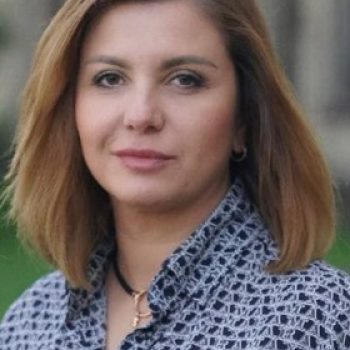
Prof. Dr. Maryna Kravchenko
National Technical University of Ukraine «Igor Sikorsky Kyiv Polytechnic Institute”, Ukraine
COMMITTEE
CONFERENCE CHAIRMAN:
Parmen Khvedelidze Doctor, Professor, Rector of Batumi Navigation Teaching University, Georgia.
DEPUTY CHAIRMEN:
Paolo Pardolesi Director of Ionic Department in Legal and Economic System of Mediterranean: Society, Environment, Culture, University of Bari Aldo Moro, Italy.
Badri Gechbaia Doctor, Professor, Head of research center of Batumi Navigation Teaching University, Georgia.
Nataliia Savina Doctor, Professor, Vice-rector for Research Work and International Relations, National University of Water and Environmental Engineering, Rivne, Ukraine.
ORGANIZING COMMITTEES
Ketevan Goletiani Professor, Dean of the Faculty Business and Logistics of Batumi Navigation Teaching University, Batumi, Georgia.
Gela Gvarishvili Vice Rector of Batumi Navigation Teaching University, Professor, Batumi, Georgia.
Viktor Moshynskyi Doctor, Professor, Rector of National University of Water and Environmental Engineering, Rivne, Ukraine.
Viktoriia Khaustova Doctor, Professor, Research Center for Industrial Development Problems of National Academy of Sciences of Ukraine.
Maryna Kravchenko Doctor, Professor, National Technical University of Ukraine “Igor Sikorsky Kyiv Polytechnic Institute”, Ukraine.
Olha Ilyash Doctor, Professor, National Technical University of Ukraine «Igor Sikorsky Kyiv Polytechnic Institute”, Ukraine.
Kateryna Boiarynova Doctor, Professor, National Technical University of Ukraine “Igor Sikorsky Kyiv Polytechnic Institute”, Ukraine.
Radi Dimitrov PhD, Associate Professor, Vice-rector, University of Telecommunications and Post, Sofia, Bulgaria.
Viktor Koval Doctor, Professor, Global Change Research Institute of the Czech Academy of Sciences, Prague, Czech Republic.
SCIENTIFIC COMMITTEE
Agnieszka Generowicz Doctor Habilitated of Engineering, Professor, Institute of Water Supply and Environmental Protection, Cracow University of Technology, Poland.
Irine Tavadze Associate Professor of Batumi Shota Rustaveli State University.
Claudia Capozza Doctor, Professor, University of Bari Aldo Moro, Italy.
I Wayan Edi Arsawan Doctor, Department of Business Administration, Politeknik Negeri Bali, Indonesia.
Ida Ayu Oka Martini Doctor, Associate Professor, Faculty of Economic and Business, Universitas Pendidikan Nasional, Indonesia.
Gela Mamuladze Doctor, Professor, Batumi Shota Rustaveli State University.
Liubov Smoliar Rector, Professor, International University of Finance; National Technical University of Ukraine «Igor Sikorsky Kyiv Polytechnic Institute”, Ukraine
Piotr Olczak PhD, Mineral Energy Economy Research Institute Polish Academy of Science, Poland.
Putu Wijaya Sunu Doctor of Engineering, Department of Mechanical Engineering, Politeknik Negeri Bali, Tuban, Indonesia.
Mariana Petrova Doctor, Professor, St. Cyril and St. Methodius University of Veliko Tarnovo, Bulgaria.
Marzena Sobczak-Michałowska Professor, WSG University, Poland.
Mariusz Barczak Professor, WSG University, Poland.
Natalia Kovshun Doctor, Professor, Director of Educational and Scientific Institute of Economics and Management, National University of Water and Environmental Engineering, Rivne, Ukraine.
Natela Tsiklashvili Doctor, Professor, Dean of Faculty Economics and Business, Batumi Shota Rustaveli State University.
Ni Made Utami Dwipayanti PhD, School of Public Health, Udayana University, Indonesia.
Olena Trofymenko Doctor, Professor, National Technical University of Ukraine «Igor Sikorsky Kyiv Polytechnic Institute”, Ukraine.
Olena Shevchuk Doctor, Associate Professor, National Technical University of Ukraine «Igor Sikorsky Kyiv Polytechnic Institute”, Ukraine.
Olha Pavelko Doctor, Professor, National University of Water and Environmental Engineering, Ukraine.
Olha Soloviova PhD, Donetsk National Medical University, Ukraine.
Vakhtang Chkareuli PhD, Associate Professor, Faculty of Business Administration, Business and Technology University, Georgia.
Tetiana Salashenko PhD in Economics, Assistant Professor, Research Center for Industrial Development Problems of National Academy of Sciences of Ukraine.
Tengiz Apkhazava Doctor, Professor, Batumi Navigation Teaching University, Georgia.
Stella Lippolis Associate Professor, University of Bari Aldo Moro, Italy.
Vladimer Glonti Doctor of Economics Sciences, Professor, Batumi Shota Rustaveli State University, Georgia.
Yevhen Krykavskyy Doctor of Economics, Professor, Department of marketing and logistics, Lviv Polytechnic National University, Ukraine.
Youssef El Tabsh Ph.D. in Energy Management, Programme Manager at Makhzoumi Foundation, Beirut, Lebanon.
Waldemar Wójcik Doctor, Full Professor, Director of Institute of Electronic and Information Technologies, Faculty Electrical Engineering and Computer Science, Lublin University of Technology, Poland.
Wayan Gede Supartha Doctor, Professor, Faculty of Economic and Business, University of Udayana, Indonesia.
ETHICS
ORIGINALITY
When an author submits a researcher paper to the ISCES 2023, this manuscript must be an original work.
Authors of a research paper should ensure that the article is an original work of listed authors, it was not previously published, nor was it sent to any other publication or conference.
PERSONALITY
If you are collaborating with other authors to publish an article, everyone should agree which author will be appointed as corresponding author. A corresponding author is the point of contact between authors and the publication where the article is sent. In addition to all the authorship criteria described, the corresponding author is also responsible for:
Include, as co-authors, all appropriate people and none inappropriate.
Obtain, from all co-authors, their consent to be appointed as corresponding author, as well as their approval for final version of the article, as is was accepted for publication.
Keep all approved co-authors informed about current status of an article submitted for publication. This includes to provide all co-authors with copies of the reviewers’ comments, and a copy of the published version, if necessary.
Select the corresponding author of your article before sending it to a publication. Co-authors remain responsible for the submitted paper since is reviewed and published under their names.
CITATIONS, REFERENCES, BIBLIOGRAPHY.
You should always cite any source used in your work. As references are required in several cases, following guidelines could be useful:
PLAGIARISM
All papers are reviewed by a native speaker. All papers are thoroughly checked for plagiarism. Acceptable minimum of originality is 90%.
SELF-REFERENCING
While some self-citation may be desirable, authors should avoid overly citing their previous work to inflate their citation count. Authors should also avoid a self-citation that could violate the double-blind review process.
CONFLICT OF INTERESTS
Authors should avoid conflicts of interest or the appearance of conflicts of interest throughout the research process. A conflict of interest is any event known to a participant in the publication process such that, if it is revealed later, it would make a reader feel reasonably deceived, (or an author, reviewer or editor feels defensive). If there are doubts about whether a circumstance represents a conflict, the authors should contact the Scientific Committee, so that it can assess its importance.
DOUBLE-BLIND REVIEWING
ISCES 2023 follows a double-blind review process, by which the Authors do not know the reviewers and vice versa. Authors should respect the confidentiality of the review process and should not be disclosed to reviewers, and vice versa. For example, the manuscript should not include any information through which any Author identity can be inferred to a Reviewer. Authors should not publish the work they have submitted to websites where they can be easily discovered by potential reviewers, including working documents and previous drafts.
IMPORTANT DATES AND NOTES
Paper submission: September 15, 2023.
Notification of acceptance and invitation to submit full papers: September 20, 2023.
Final paper submission (final version of camera-ready papers) – submission deadline: October 10, 2023.
Registration: October 20, 2023.
PARTNERS
Batumi Navigation Teaching University
National University of Water and Environmental Engineering
University of Bari Aldo Moro
PROGRAMME & FEE
Conference Program
LOCATION: Batumi Navigation Teaching University
Tamar Mefe Ave. 38, Batumi, Georgia
Conference Day: October 20, 2023
09.30 – 10.00 Opening / Registration
10.00 – 10.15 Opening Remark from The Chairman of ISCES 2023
Prof. Dr. Parmen Khvedelidze – Rector of Batumi Navigation Teaching University, Georgia.
Prof. Dr. Paolo Pardolesi – Director of Ionic Department in Legal and Economic System of Mediterranean: Society, Environment, Culture, University of Bari Aldo Moro, Italy.
Prof. Dr. Nataliia Savina – National University of Water and Environmental Engineering, Ukraine.
10.15 – 10.55 Opening Remark from Keynote Speakers
Prof. Dr. Alessandro Rubino – University of Bari Aldo Moro, Italy
Dr. Zurab Mushkudiani – Batumi Navigation Teaching University, Georgia
Dr. Nadežda Kučaidze –Ministry of Education, Science and Sport of the Republic of Lithuania
Prof. Dr. Waldemar Wójcik – Lublin University of Technology, Poland
Dr. Giga Abuseridze – Rīga Stradiņš University, Latvia
Dr. Maryna Kravchenko – National Technical University of Ukraine «Igor Sikorsky Kyiv Polytechnic Institute”, Ukraine
Dr. Viktor Koval – Global Change Research Institute of the Czech Academy of Sciences, Prague, Czech Republic.
12.30 – 15.30 Parallel Session 1
16.00 – 16.30 Closing Remark
16.30 – 17.00 Closing the Conference
Registration fee
The registration fee is 225 euros and 145 euros for Ukrainian authors (if there is at least one author with a non-Ukrainian affiliation, the registration fee is considered as a regular) paid after notification of paper accept.
It includes promotion of the conference materials, proofreading, revising, & editing, refreshments/coffee breaks, admissions and organizing costs. Bank account details and payment instructions will be sent to participants after papers approval.
At least one of the authors must register and pay the registration fee by October 20, 2023 to participate in the conference. After this date, refunds are not possible. No refund is possible after this date. In the case of uncertainty, feel free to contact the organizing committee for clarification to scincecentre@gmail.com.
VIZA & INVITATION
Visa Support
We provide visa support to the participants who require visa application to attend the event. Please read the information below carefully and proceed with the letter of invitation request, if necessary.
If you need assistance or an invitation letter to apply for a visa to attend the conference, please send to Badri Gechbaia an email to b.gechbaia@bntu.edu.ge
You may also send a scanned copy of your passport. In any case, we will treat all your personal information as confidential. Your information will only be used for the purposes of drafting the invitation letter.
Please provide your passports details, including:
- Your full name as shown in your passport
- Your passport number
- Your nationality
- The date of issue and expiration date of your passport
- Your title and institution
- The role you will have at the conference (i.e., participating as a panel speaker, discussant and/or chair), including the title of the paper you will present (if applicable) and the title of the panel to which you are assigned
- To whom the letter should be addressed
- Postal address
- Email address to receive the letter of invitation
For more information please use link https://www.evisa.gov.ge/GeoVisa/
THE VENUE
Batumi Navigation Teaching University
Tamar Mefe Ave. 38, Batumi, Georgia
+995 593 722115 · b.gechbaia@bntu.edu.ge